|
By Lisa Mauro, Former DC Senior Strategist, #TeachSDGs Advocate “It is necessary and urgent that teachers prepare students to understand the world in which they live, in all its complexity, to recognize the way in which global and local affairs are intertwined, to understand globalization and its consequences, including global risks, and to have the skills and the desire to contribute to improving the world.” --Dr. Fernando Reimers, Harvard Graduate School of Education We are Global Citizens. The world in which we live is both interconnected and interdependent. As Educators, we must prepare our students for future success by collaborating with citizens from across the world through a commitment to a wide-range of initiatives. These initiatives should aim to foster habits of mind that embrace cultural empathy, a commitment to cooperation, an appreciation of our common humanity, and a sense of global responsibility. The United Nations Division of Sustainable Development (UN-DESA), in collaboration with the United Nations Department of Public Information (UN-DPI) have partnered with schools across the world to educate our school communities and the wider local community about the UN Sustainable Development Goals (SDGs). Proposed in September 2015 by the UN, the SDGs have been approved unanimously by the Member States, who pledged a concrete engagement in the realization of the goals. The goals aim to ensure a life of dignity for everyone worldwide and protection of our common home, the Earth. Many schools have begun offering “Cultural Competency and Global Engagement” leadership courses, which center around what it means to be a global citizen. Courses are thematically organized to follow the UN model of presentation and debate - meaning it uses technologies best suited to reach a global audience. These experiential and elective courses aim to provide students with the knowledge, tools, and skills to address the challenges of a global community. Highlights of such elective courses include:
In 2015, Ranney School (Tinton Falls, NJ) partnered with Monmouth University faculty members to use project-based learning to develop global citizenship skills, focused on one or more of the UN Sustainable Development Goals (SDGs) for 2030. This year, students focused on Peace and Justice (SDG #16) as well as Quality Education (SDG #4). Global Citizens Program students and Art students installed original artwork in the campus buildings as part of the Peace & Justice Project. Students collaborated on this cross-disciplinary project to raise awareness of UN SDG #16, Global Peace and Justice. The primary focus of the project was to understand the discrepancies in access to education faced by girls throughout the world. Students worked together to research, craft, and present to the school community a variety of projects that raise awareness of this key global challenge. The project was divided into two phases to allow a broader thought process to inspire their art creations. Phase I of the project included brainstorming and Phase II involved photography students who created images that express their visions of peace. Teens and adolescents are an important catalyst for change, as they possess innovative ideas and a large influence in our small spheres. Students found the collaborative phases of the Peace & Justice project to be inspiring! The art installations allowed them to creatively participate as members of a global discussion and provided them with a better understanding and background of the SDGs discussed in class. They could see first-hand how many of the SDGs are interconnected, specifically regarding the importance of educating individuals to bring them out of poverty. I find that this type of experiential learning is crucial in developing a more well-rounded education and understanding the abstract ideas within our Global Citizens community. Ultimately, the ability to contribute ideas beyond the classroom is truly beneficial and allows students to develop their skills in incredible ways. Looking to do something similar in your school? Art installations are a creative way to speak of the need for Quality Education for People and Planet; the education obstacles that specific groups around the world face, specifically minorities in underdeveloped countries. Students can review the UNESCO GEM Report (Global Education Monitoring), taking special note of what has been achieved and what still must be done. The report outlines significant disparities continue to exist between gender in receiving education. Students can brainstorm ideas that would create sustainable futures for all, and develop achievable action plans for local communities centered around addressing work deficits and labor market inequalities among global youth. Focused on youth employment, students will embrace the fundamental social policies for an inclusive and sustainable society. They will learn that education, the SDGs, are interconnected with poverty in many ways, and proper schooling and training would ultimately help unemployed youth penetrate the labor market and join the workforce. As Educators, we must employ a design thinking process. Schools should group together to assess resources and the actions needed to promote change in our global education community. We must be committed to offering a wide-range of initiatives to enable our students to become globally proficient, so they may successfully fulfill their roles as Global Citizens with an appreciation of our common humanity. We must aim to foster habits of mind, and a sense of global responsibility. This includes stepping out of traditional learning zones and comfort zones, to build skills necessary for cultural empathy, interaction, and future cross collaboration.  Lisa Mauro is a former DC Senior Strategist who spent the majority of her successful career working in the Nation’s public interest to make a positive difference. She is Ivy League educated, holding a dual Bachelor of Arts in International Studies/International Business, with minor in English, History, and Economics from Notre Dame; multiple Harvard Graduate Degrees in Strategy, Negotiation, and Communications, and a Master of Education-General Education from Liberty University. Mauro is an active Member of Kappa Delta Pi (KDP) International Honor Society in Education, founded to foster excellence in education and promote fellowship among those dedicated to teaching. KDP is affiliated with the United Nations as a non-governmental organization (NGO), with dedicated focus on Education including children, youth, women, families, conflict resolution, social development, poverty, and human rights. She is an Activist, a UNICEF USA Congressional Team Member, UN Messenger of Humanity and #TeachSDGs Member. You can connect with Lisa on Twitter at @CasperMomNJ. 7/10/2017 01:05:50 pm
Another wonderful source of experiential learning ideas for the Global Goals and global citizenship is the JUMP! Foundation... From GG #16 to the rest there are plenty of ideas and activities on their Power of Experience website - http://experience.jumpfoundation.org/ Comments are closed.
|
AuthorSTeachSDGs Team & Contributors Archives
November 2019
Categories |
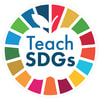
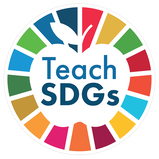
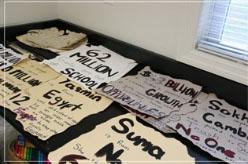
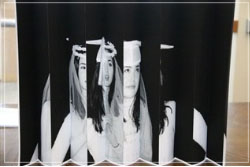
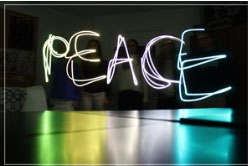
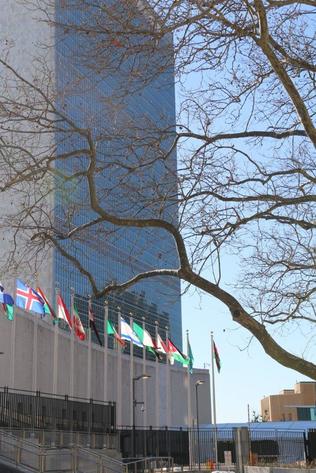
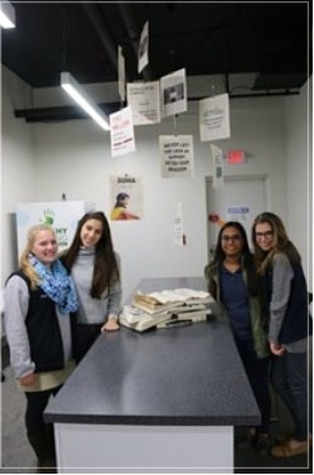
 RSS Feed
RSS Feed